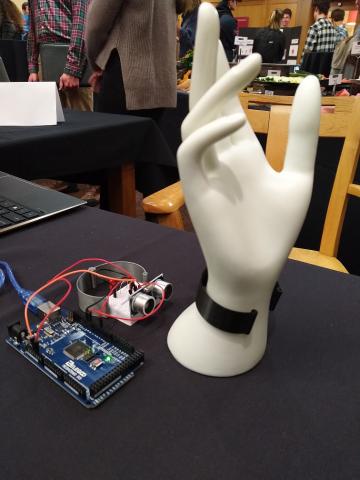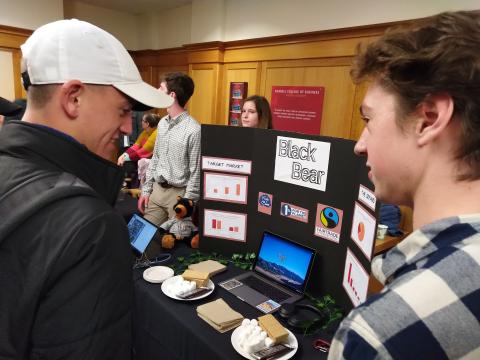Revamped class welcomes ‘Fourth Industrial Revolution’
To redesign the popular Gateway to Business class, professor Stephen Haag needed to think like an entrepreneur.
For years, the required introductory course has been among the most popular at the University of Denver’s Daniels College of Business. Typically, as students learned the ins and outs of industry, they also worked to develop a mobile app-based startup company, which they would then pitch at the quarterly Madden Challenge. But this fall, Haag rolled out something new.
“Our goal was: What’s the next big wave that’s coming out there?” said Haag, faculty director for the college’s entrepreneurship program. “How are new technologies going to disrupt the business world?”
The answers lie within Marcus Commons, site of the fall 2019 Madden Challenge, which serves as the capstone to the revamped Gateway to Business course, now known as the Fourth Industrial Revolution. The room has the feel of a bustling science fair. Judges walk around with clipboards, weaving between a sea of poster boards and product demonstrations.
In the middle of it all stands Sophia Mellsop, a sophomore transfer student. Her startup, Cherish, makes 3D-printed shoes, which can be returned once they become worn or passé, melted down and reprinted into something else.
It took merely 10 weeks for Mellsop to convert her idea into a prototype — a timeline that’s especially impressive considering she had never touched the necessary technology before.
“I knew nothing about 3D printing,” she says. “This class gave me the resources to be able to access the Innovation Lab. It’s been a great introduction to DU and to Daniels.”
Exposure is an essential part of the Fourth Industrial Revolution course. The curriculum jumps nimbly through the latest and most disruptive new technology out there: artificial intelligence, cryptocurrency, 3D printing, extended reality, autonomous vehicles and the Internet of Things.











